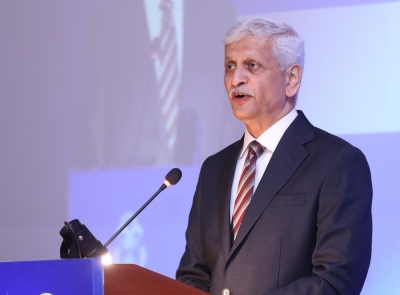Right to dissent is the hallmark of democracy, says former CJI UU Lalit at Soli J Sorabjee Memorial Lecture
New Delhi: “The right to dissent is the hallmark of democracy. A right for free expression is the mark of democracy and noted jurist and former Attorney General of India, Soli J. Sorabjee was a firm believer and upholder of this right,” said former Chief Justice of India, U.U. Lalit at the Soli J. Sorabjee Memorial lecture organised by the Jindal Global Law School, O.P. Jindal Global University recently.
Justice Lalit delved into his personal interactions, the public judgements and writings of Sorabjee to demonstrate his deep understanding of the Constitution and the laws of the country and how he was key to upholding the law as a pillar of democracy. As a human being he had a wide range of interests from music to poetry, literature to geography and he was an eclectic reader. But he was committed to upholding the tenets of the law and his most significant work has been in the area of freedom of expression. It needs to be said that some of his arguments and cases belong to the era when the emergency had been enforced!” Justice Lalit recalled.
He recalled how important research and preparation was to Sorabjee who ensured that the members of his team followed due process and his belief in the rule of law. His writing on protecting the right to dissent and freedom of expression lay in the foundation of democracy itself in Greece where the very crux of democratic setup wanted you to participate in every walk of life, show your concern and do your duties as a citizen. It would be expected of every citizen to express himself or herself and make his or her views known to everybody in the society. “Even if there is one dissenting voice in society, you may not agree with it, but that voice has a right to be heard and that is the basis of the right to free expression.”
Professor Dabiru Sridhar Patnaik, Registrar, O.P. Jindal Global University welcomed the distinguished gathering and spoke about the high-level contribution made by Soli J. Sorabjee to the study and practice of law in India and how his erudition and knowledge upheld the law as well. “JGU is the proud recipient of the personal collection of books from Sorabjee’s library and I invite you all to peruse through the collection to get an understanding of the wide-ranging interests of the legal luminary who was not just proficient about the study and interpretation of law but had a great understanding of the world at large.”
Professor S.G. Sreejith, Executive Dean, Jindal Global Law School spoke about the intellectual aura and respect with which young law students saw Soli J. Sorabjee. “Not many of us had the good fortune to know him or work with him in his chambers but we have had the opportunity to be able to read his writing and interpretations of the law. His legacy as a jurist, legal expert and the Attorney General of India will be long and enduring. But I do see him, additionally, as a reader and you only need to see his collection of books and the ideas that influenced him and his sensibilities.”
The occasion was also marked by announcing the recipient of the 2024 Soli J. Sorabjee Endowment Award & amp; Scholarship, established to honour the memory of renowned Jurist and former Attorney General for India, Soli J. Sorabjee. This Award and Scholarship is awarded annually to a deserving student in the field of Human Rights Law & Theory, offered as part of the undergraduate programmes at the Jindal Global Law School. This year the award was given to Khushi Doshi of the Jindal Global Law School.
Soli J. Sorabjee was born in 1930 in Bombay. He studied at St. Xavier’s College, Mumbai and Government Law College, Mumbai, and was admitted to the bar in 1953. At Government Law College, he was awarded the Kinloch Forbes Gold Medal in Roman Law and Jurisprudence (1952).
In 1971, Sorabjee was designated a senior advocate of the Bombay High Court. He served as Solicitor-General of India from 1977 to 1980. He was appointed Attorney-General for India on 9 December 1989 up to 2 December 1990, and then again on 7 April 1998, a post he held until 2004. In March 2002, Soli Sorabjee received the Padma Vibhushan for his defense of the freedom of expression and the protection of human rights. Throughout his career, Soli remained passionate about Public Law and International Law, especially in relation to the protection and promotion of human rights. Soli Sorabjee was appointed by the UN as a Special Rapporteur for Nigeria. Later he was appointed as Chairman of the UN Sub Commission for the Promotion and Protection of Human Rights, from 1998 to 2004. He also served as a member of the United Nations Sub Commission on Prevention of Discrimination and Protection of Minorities since 1998. Soli Sorabjee also served as a member of the Permanent Court of Arbitration at the Hague.
Representing India, in the Atlantic Case between India and Pakistan, Sorabjee appeared before the International Court of Justice, The Hague.
–IANS


Comments are closed, but trackbacks and pingbacks are open.